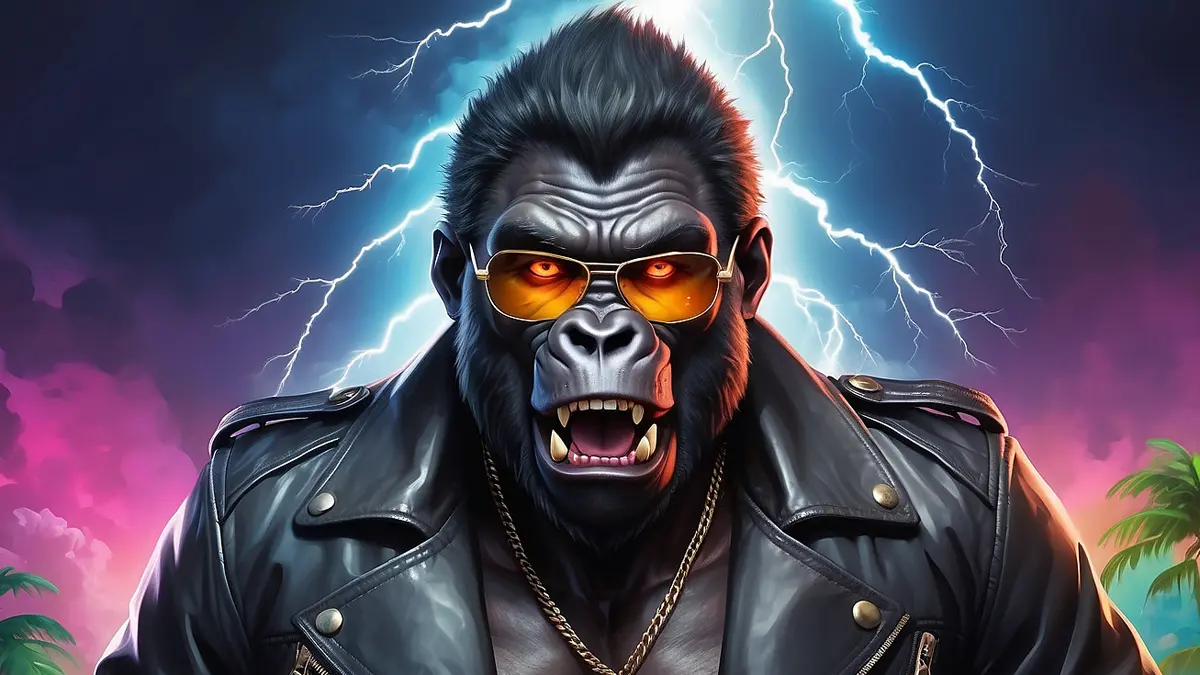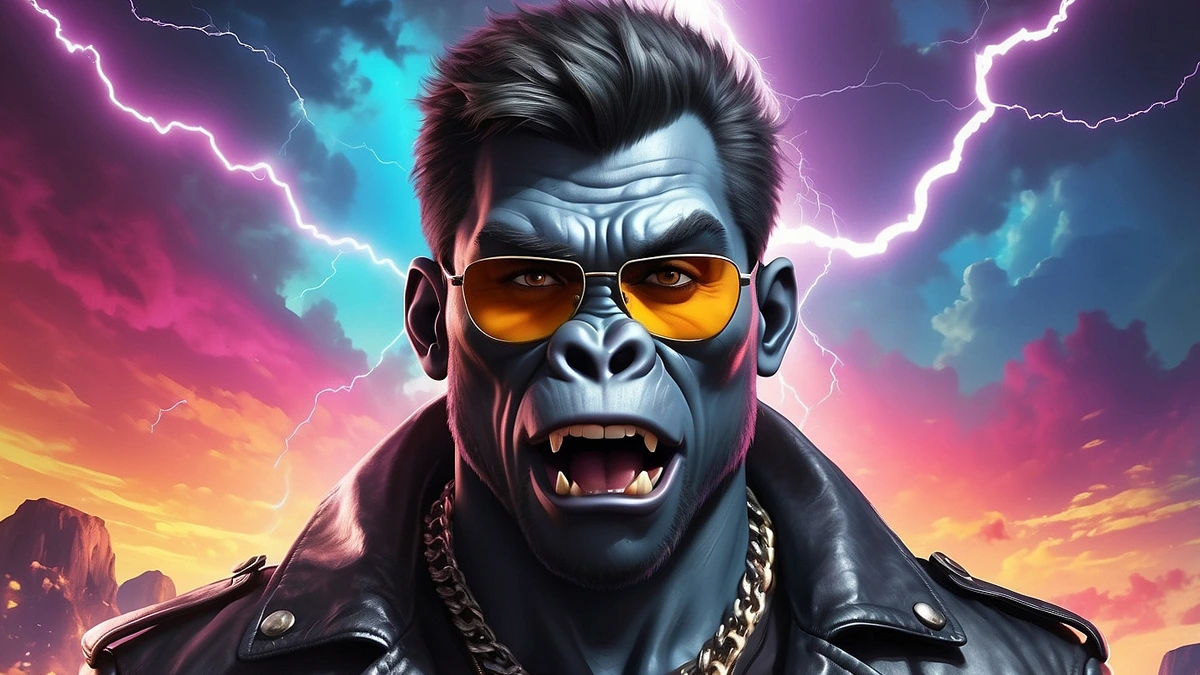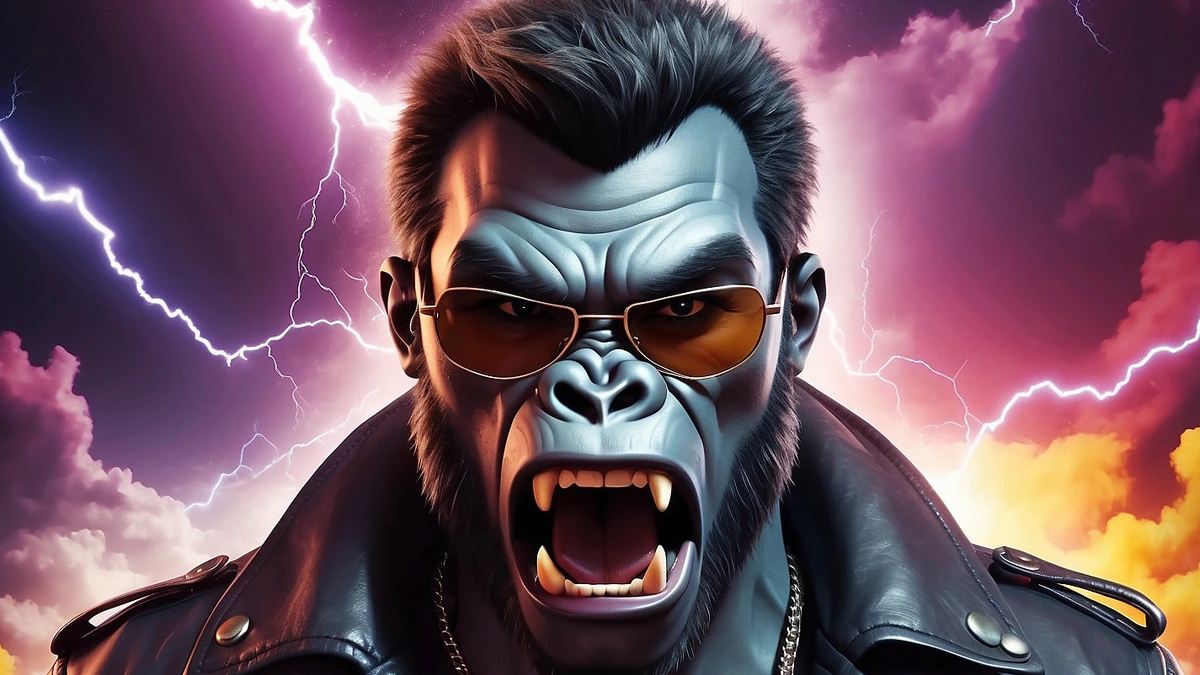The world of Rondu’s Redemption is one filled with violence, intrigue, and transformation, set against a backdrop of evolved species grappling for power and survival in a post-apocalyptic future. It’s a story that, on the surface, might appear to be one of martial prowess, gang wars, and revenge, but beneath the brutal exterior lies a profound exploration of identity, memory, and the complex nature of redemption.
To truly understand Rondu’s Redemption, one must first look back at its predecessor, Kodo: The Revolution. In the distant future, humanity has long been extinct, wiped out by the Zerodoom virus in 2085. Four thousand years later, a new world has emerged—one dominated by intelligent, evolved species such as gorillas, lions, tigers, wolves, and more. In this new order, the nation of Gorillst, led by an ambitious gorilla named Ruta, rises as the most powerful empire.
Ruta, through sheer force and cunning, subjugates six other nations, establishing an oppressive regime that stifles any semblance of freedom or cultural unity. It is within this volatile world that the protagonist Kodo rises—a rebel leader who not only seeks to overthrow Ruta but also brings the first organized religion to the evolved species. Kodo’s revolution is one born of faith, determination, and love, yet his victory, marked by his ascent to power, is also tinged with personal tragedy. Kodo’s love story with Durica, and the fateful journeys of Jus and Rayi, set the emotional tone of loss that permeates throughout.
By the end of Kodo: The Revolution, the mighty tyrant Ruta is overthrown, but Kodo’s success is short-lived. His death leaves behind a world plunged into chaos. And it is in this new world of gang warfare and shattered alliances that Rondu’s Redemption begins.
A Son’s Journey
Rondu, the son of Ruta, stands at the center of this new saga. He is not merely a warrior shaped by the world’s brutality—he is a young man driven by revenge, guilt, and a deep need for redemption. From the very beginning, his journey is marked by loss and suffering. As a child, Rondu is pursued by Roos, the leader of the Cunning Hyena gang. Roos, like his father Busi, seeks to destroy Rondu for the sins of his father Ruta. Rondu’s escape into the Dead Forest is not just a literal flight from danger, but a symbolic descent into the unknown. The moment he kills and consumes the flesh of a deadly snake in the forest marks the beginning of his transformation, both physically and mentally.
Yet, Rondu’s evolution is not without guidance. Upon his return from the Dead Forest, he encounters Tami, a mysterious master who trains him in four supreme martial arts techniques—Fire Dragon Fist, Ice Storm Sword, Shadow Cloud Kick, and Silver Moon Light. For over a decade, Rondu hones these skills, rising to become the deadliest fighter in the world of gangs. But even as he masters these techniques, Rondu’s life is marred by further tragedy.
When Busi, the leader of the Cunning Hyenas, discovers Rondu’s whereabouts, he exacts a horrifying revenge by massacring Rondu’s entire village, including his beloved younger siblings. The violence reaches its peak when Rondu himself is nearly killed, shot four times and left for dead in a raging river. Yet, fate intervenes, and Rondu is saved by a mysterious figure, though at the cost of his memory.
It is in the wake of this devastating loss that Rondu’s journey truly begins—a journey of reclaiming lost memories, seeking justice for his slain family, and confronting the shadows of his past, including the legacy of his father Ruta.
The Rise of Silverback
Rondu’s narrative is not a solitary one. As he fights to regain his memories and find a path forward, he takes on a new identity—Silverback. Trained by a man named Eagle, Silverback becomes a powerful and feared figure in the world of gang warfare. Eagle, a figure shrouded in mystery and manipulation, believes in achieving peace through violence, and Silverback becomes his weapon, leading the Ten Great Assassins to destroy rival gangs.
As Silverback’s legend grows, so too does his doubt about Eagle’s motives. Silverback begins to question the violence he is perpetuating, the cost of peace, and his own role in this chaotic world. As he starts to regain fragments of his memory, the tension builds towards an inevitable confrontation between his two identities—Silverback, the fighter for Eagle’s cause, and Rondu, the son seeking redemption for his past.
Themes of Power and Identity
At its heart, Rondu’s Redemption explores the duality of identity. Rondu is constantly caught between two opposing forces—his past and his present. On the one hand, he is the son of Ruta, a ruthless tyrant whose legacy is marked by oppression and violence. On the other hand, he is Silverback, a man who has carved out his own path through sheer will and mastery of martial arts.
The tension between these two identities speaks to a broader theme of power and its consequences. Can someone truly escape their past, or are we forever shaped by the legacies of those who came before us? Rondu’s struggle to reconcile these two parts of himself drives much of the emotional weight of the novel.
His relationship with Eagle also adds to this complexity. Eagle represents a form of twisted mentorship, offering Silverback the tools to become the most feared warrior, but at the cost of his moral integrity. As Rondu begins to question Eagle’s true intentions, the novel delves into the complexities of power dynamics, manipulation, and the price of loyalty.
A World of Gangs
Beyond the personal narrative of Rondu, Rondu’s Redemption is also a rich tapestry of gang warfare. The seven nations, once united under Kodo, have splintered into chaos, each ruled by a dominant gang. The Cunning Hyenas, the Mighty Gorillas, the Red Lions, and others vie for control, each with their own codes, rivalries, and ambitions. The gang warfare is not merely about territorial dominance—it reflects the larger disintegration of societal order following Kodo’s death.
Each gang represents a different philosophy of power—the Cunning Hyenas, with their reliance on firearms and strategic cruelty, are contrasted with the Mighty Gorillas, who value martial arts and honor. These clashes of ideology and tactics create a brutal and constantly shifting landscape, one where alliances are fleeting and survival is never guaranteed.
The Shadow of Love and Loss
In addition to themes of power and redemption, Rondu’s Redemption is also a story deeply rooted in love and loss. The relationships between characters, whether familial or romantic, are often tinged with tragedy. Rondu’s love for his siblings, his bond with his mother Durica, and even the fleeting moments of camaraderie he shares with those around him serve as reminders of the human capacity for connection amidst the violence.
Yet, these connections are often shattered by the world’s brutality. The massacre of Rondu’s village, the betrayal by those he trusts, and the constant threat of death create an atmosphere of impermanence. Every moment of love is counterbalanced by the inevitability of loss, creating a poignant tension that runs throughout the novel.
A Story of Redemption
Ultimately, Rondu’s Redemption is not merely a tale of revenge—it is a story about the possibility of redemption in a world that seems devoid of hope. As Rondu fights his way through the tangled web of gang warfare, personal loss, and the weight of his father’s legacy, he is searching for something deeper—a sense of peace, a way to atone for the sins of the past.
The novel asks difficult questions: Can we truly redeem ourselves when the world around us is built on violence? Is there room for forgiveness in a world that has forgotten mercy? And perhaps most importantly, what does it mean to find redemption in the eyes of those we have lost?
In the end, Rondu’s journey is one that resonates on multiple levels—an exploration of identity, a meditation on the nature of power, and a testament to the enduring human spirit’s search for meaning in even the darkest of times.
Conclusion
Rondu’s Redemption is a gripping and emotionally charged continuation of the saga begun in Kodo: The Revolution. Through its richly imagined world, complex characters, and thematic depth, the novel challenges readers to consider the nature of power, identity, and redemption in a world shaped by violence and loss. As Rondu’s journey unfolds, readers are drawn into a story that is as much about the human condition as it is about martial arts and gang warfare.



